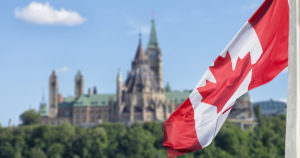The pandemic of COVID-19 has significantly impacted workplaces around the globe. Many employers are facing an economic crisis that they have never experienced before. In Ontario, provincially regulated employees have been informed of their legal rights in the event of workplace closures or layoffs. However, alongside provincially regulated employees, it is also important to highlight the entitlements of those who are federally regulated. Federally regulated employees should understand their rights under the Canada Labour Code (the “Code”) in response to COVID-19.
What kind of companies are federally regulated?
Federally regulated employees are governed by the Canada Labour Code. Contrarily, provincially regulated employees are governed by different legislation such as Ontario’s Employment Standards Act, 2000. The main sectors governed by the Code are as follows:
- Banking
- Interprovincial/international transportation (eg. trucking companies, railways)
- Airports, and air transportation
- Television, Telephone, Radio and Cable systems
- Fisheries
- Grain Elevators
- Uranium Mining and Processing
- First Nation Activities and Crown Corporations
It is significant to note that there are exceptions to this list. Often, whether you are a federally regulated or provincially regulated employee is factually based. If you are unsure whether you are a federally regulated employee, it is recommended to consult with an experienced employment lawyer.
As a federally regulated employee, I don’t have COVID-19 but I need to self isolate. Am I entitled to leave?
Yes. A new amendment to the Code, Bill C-13 passed on March 25, 2020, has introduced up to 16 weeks of unpaid leave for federal employees who are “unable or unavailable to work for reasons related to COVID-19”. Therefore, you do not necessarily need to be sick with COVID-19 to go on leave. Employees must give their employers written notice as soon as possible, outlining the intended length or any change to the length of the leave. When required by the employer, the employee may also need to provide a written declaration in support of the leave.
Under the Code, an employer cannot participate in reprisal as a result of an employee taking a COVID-19 related leave. In other words, an employer cannot dismiss, suspend, layoff, demote or discipline an employee. All employee benefits must continue during the period of the leave, including health and disability benefits, pension, and accumulated seniority.
I have tested positive for COVID-19/I have symptoms of COVID-19. Am I entitled to leave?
Yes. Federally regulated employees are entitled to up to 17 weeks of unpaid leave for personal illness. Again, employees should provide notice of the leave to their employer as soon as possible. It is crucial that if you are experiencing any of the symptoms of COVID-19, that you stay home to limit the risk of spreading the virus.
Do I still have access to paid sick days?
Yes. Generally, federally regulated employees are entitled to up to 3 days of paid sick leave under the Code if they have worked over 90 days of employment. In total, employees are entitled to 5 personal days of leave (including the 3 paid sick days).
My family member is sick with COVID-19 and I need to take care of them. What are my rights?
If a family member is critically ill and a federally regulated employee needs to care for them, the following applies:
- If the family member is their child, they can access up to 37 weeks of unpaid leave; or
- If the family member is an adult, they can access up to 17 weeks of unpaid leave.
If a family member has a serious medical condition with a significant risk of death due to COVID-19, they can take up to 28 weeks of unpaid leave.
Due to the recent amendment of the Code, employees no longer need to provide a medical certificate confirming the family members’ illness to take these leaves.
I got temporarily laid off. How long can this last?
Currently, at most until December 30, 2020. Under the Code, a temporary layoff is 3 months or less. However, the following circumstances allow a temporary layoff to be more than 3 months but less than 6 months if the employer notified the employee of the recall date. To give employers more time before they would be liable for severance pay and to allow them longer to figure out how to recall employees, on June 22, 2020, the federal government has temporarily extended the temporary layoff periods to the following:
- For those laid off before March 31: An employer has six months or until December 30 (whichever occurs first) to recall their employee; and
- For those laid off between March 31 and September 30: An employer has until December 30 to recall their employee (unless they were given a later recall date).
The extended layoff period does not apply for layoffs after September 30, 2020.
I work for the Government of Canada, what are my rights?
For more information regarding this topic, visit the Government of Canada’s website.
Am I still entitled to EI benefits as a federally regulated employee?
Yes, federally regulated employees can access EI benefits if they are affected by COVID-19. Both federally regulated and provincially regulated employees have the same EI eligibility.
For more information on COVID-19, read COVID-19 and the Workplace: What Employees Need to Know. Monkhouse Law is a boutique employment law firm in Toronto with a particular focus on workers’ issues. If we can help, give us a call. We offer a free 30-minute phone consultation.
Call us for a FREE 30 minute phone consultation at 416-907-9249 or submit a callback request
- Appeal Dismissed: Court Upholds Workers’ Compensation Appeal Tribunal Decision in Guitard v. Workplace Health and Safety Compensation Commission - September 8, 2023
- Law Firms Should Think Twice Before Withdrawing Articling Offers - April 21, 2020
- Is Your Summer Internship Cancelled Due to COVID-19? Here’s What To Do (Updated June 18, 2020) - April 16, 2020

